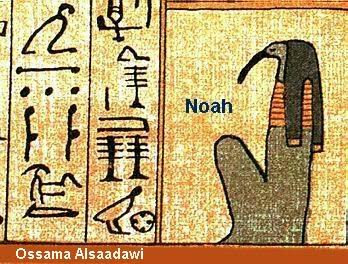الجمعة، 26 سبتمبر 2008
Religion and Spirituality
Since the prehistoric age, Egyptians believed that all aspects of life were controlled by supernatural powers. One important religious concept was the creation of the universe. For the Egyptians, creation was essentially an act of generation, represented by the yearly flooding of the Nile River. Each day was also considered a repetition of the act of creation. As the sun, represented by Atum, traveled across the sky to rise and set and begin the cycle again, so the Egyptians felt assured that the created order of their world was eternal and ongoing.Unlike modern religions, which are based on a set of theological principles, the ancient Egyptian religion was concerned with interactions between people and their gods, the ethics of dealing with others, and the performance of spiritual duties. The universe was believed to work according to a strict eternal law, Ma’at, which means Right or Balance. For the Egyptian, the universe functioned with predictability and regularity. In the moral sphere, purity was rewarded and sin was punished. Man had to subdue his desires and actions to that law in order to live a good life so that society would be on the right track. Some deities were worshiped countrywide and others were worshiped in certain regions. The worship of a number of gods was a distinguishing feature of the ancient Egyptian religion until the reign of Akhenaten. Akhenaten unified all the gods in the image of one single god, which he named Aten, the sun god. This god was depicted as a solar disk, sometimes with wings or with life-giving hands on rays. After Akhenaten's death, the Egyptians returned to their previous religious traditions. In the Greek era, Ptolemy the First introduced Serapis to Egypt so that both Egyptians and Greeks would have a supreme deity in common. Serapis was a composite of several Egyptian and Hellenistic deities, especially Osiris and the bull Apis. The official trinity of the Ptolemaic period was Serapis, Isis, and Harpocrates. The temple of Serapis was constructed in Koum Al-Dekka in Alexandria and his legacy lasted well into the Roman period. The Roman Empire's policy of religious tolerance paved the way for ancient religions to mix with each other. Isis, for example, was worshiped throughout the Roman Empire. The history of Christianity in Egypt dates back to the beginnings of Christianity itself. Many Christians hold that Christianity was brought to Egypt by the Apostle Saint Mark in the early part of the first century AD. Important Christian manuscripts, the oldest of which date back to the second century AD, have been found, such as the papers of the Bible of Saint John and a Christian Bible. Although Christianity was readily embraced by many, the Roman emperors persecuted Christianity until the reign of Emperor Galenus. Nevertheless, Christians went on worshiping in secret and had various unofficial schools. The reign of Emperor Constantine was the real birth of Christianity, as it was then declared the official religion of the Roman Empire. By the fourth century AD, Egypt had contributed to Christian literature, including biographies of the heroes and martyrs. Many groups and schools emerged with different religious concepts, mainly about the nature of Jesus, which led to a great controversy. That controversy reached its climax when the Orthodox Church of Alexandria separated from the Roman Church. Most of the Egyptian Christians follow the Orthodox Church. The spread of Islam in Egypt was totally different from that of Christianity. Islam came into Egypt after its diffusion into all parts of the Arab Peninsula and the completion of its basic beliefs. Those who follow Islam believe the Qur'an is the final revealed Word of God that provides a complete guide for human behavior. Its text was revealed directly to the prophet Muhammad, who is revered by Muslims as the last of God’s prophets, but he is not worshiped. However, the richest contribution of Egypt to the Islamic religion was the Sufi movement, which emerged in Egypt at the end of the second century AH (eighth century AD). A Sufi is a mystic, meaning the practitioner has a greater awareness and lives on a higher plane than which we normally live.
الأربعاء، 17 سبتمبر 2008
الاشتراك في:
التعليقات (Atom)



















